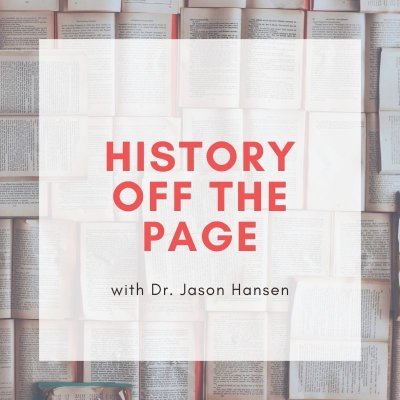This is a placeholder for your sticky navigation bar. It should not be visible.
History of the Israeli-Palestinian Conflict
The brutal surprise attack by Hamas on October 7, 2023 and the subsequent Israeli invasion and devastation of Gaza have generated tremendous interest in the long-standing conflict between Israelis and Palestinians. As we watch the seemingly endless violence against civilians, we wonder: why can’t the two sides just “get along?” This series examines the historical roots behind the headlines, placing events in their full context and helping you understand both sides’ perspectives.
| After eight years of a tense peace, war returned to the Middle East in October 1956. This episode covers the background causes of the war, including the rise of Nasser, Palestinian Fedayeen attacks, disproportionate Israeli responses, and of course British and French colonialism. |
| After eight years of a tense peace, war returned to the Middle East in October 1956. This episode covers the background causes of the war, including the rise of Nasser, Palestinian Fedayeen attacks, disproportionate Israeli responses, and of course British and French colonialism. |
| After eight years of a tense peace, war returned to the Middle East in October 1956. This episode covers the background causes of the war, including the rise of Nasser, Palestinian Fedayeen attacks, disproportionate Israeli responses, and of course British and French colonialism. |
| While the previous episode discussed the fate of the Palestinian nation after 1948, this episode covers the human side of the tragedy: the 700,000+ refugees. It highlights the range of refugee experiences, including in Gaza, Jordan and Lebanon. |
| This episode explores what happened to the idea of Palestinian nationhood after 1948, highlighting its simultaneous political failure and cultural triumph in the wake of the Nakbah. |
This episode explores the building of the Israeli nation after 1949, focusing on the construction of the Israeli state and also the response to the massive influx of Jewish refugees between 1948 and 1953.
Discusses the First Arab-Israeli War. Topics covered include: the course of the war, the reasons behind Israel’s victory, the Jordanian role in the partition of Palestine, the start of the refugee problem and more.
An examination of the last phase of the Nakba when Jewish forces went over to the offensive. Topics covered include: ethnic cleansing, Deir Yessin, and the destruction of Arab communities in Haifa, Jaffa and Tiberias (Mar-May 1948).
This episode covers the start of the Israeli-Palestinian civil war from Nov 1947-Mar 1948, highlighting how limited uses of violence spiraled out of control and assessing the strengths and weaknesses of the two sides.
Here we start our discussion of the Nakba – the expulsion of ~750K Arabs from the emerging Israeli state in 1948. Topics covered also include the run up to partition, the importance of context, and the concurrent destruction of Jewish communities around the Middle East/North Africa.
After an uneasy truce during World War II, Jewish forces launched an uprising in 1945 to drive the British from Palestine. This episodes examines the rationale behind the revolt, including the plight of Jewish refugees after 1945. It also examines the development of the Palestinian national community and the impact of the Cold War.
This episode focuses on the region during World War II, discussing among other things collaboration between Britons, Arabs and Jews; Nazi propaganda; radical Jewish terrorism and Hajj Amin al-Husseini’s explicit calls for violence against Jews.
In April 1936 tensions over Jewish immigration led Arabs in Palestine to revolt against the British. The episode discusses the course of the revolt, Izzd al-Din al-Qassam (the spirtual founder of Hamas), the violent British campaign of “pacification,” the Peel Commission and the hidden Palestinian civil war.
This episode covers the construction of a British colonial state in Palestine, highlighting some of the efforts and failures of Jews and Arabs to work together. It also highlights the complications of both Jewish and Palestinian politics, the role of further Jewish immigration to the area, and several anti-Jewish riots that followed in response.
An examination of the region during the First World War. Topics covered include common Arab and Jewish suffering under the Ottomans, Hussein’s Arab revolt, the fateful Balfour declaration, Faisal and the effort to create a Greater Syria and the origins of Jordan and Saudi Arabia.
This episode begins our examination of the history of the region, including the first Zionist migrations in the 1880s, the origins and complexities of Palestinian nationalism, Zionist efforts at Jewish “nation-building” and the role of the oft-ignored Ottoman state, which played a pivotal role in the early years of the conflict.
This episode reflects on the broader fundamentals underwriting the current crisis in Israel/Palestine. Topics covered include the complicated nature of politics and identity in the region, flaws in both the decolonization and “anti-Semitism” narratives, the lack of Palestinian agency and failures of Palestinian leadership, problems with Wilsonian notions of national rights to territory and more.
